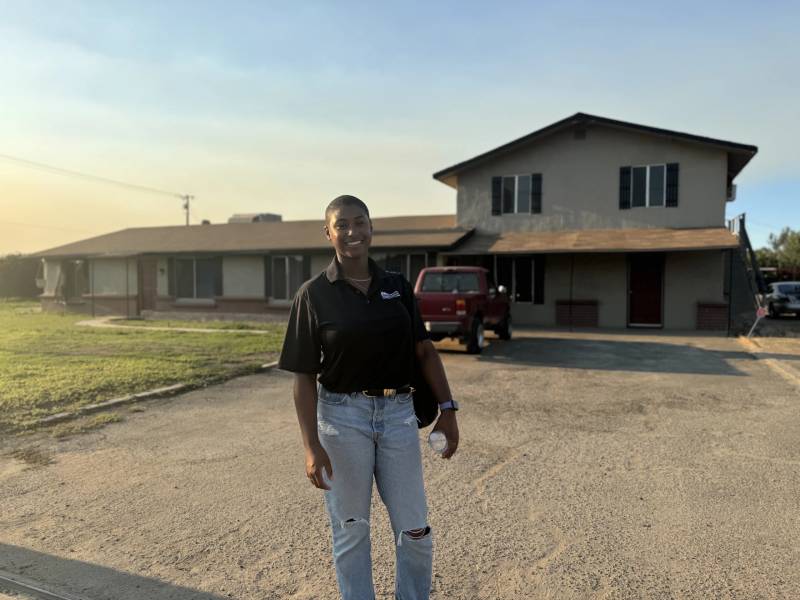Here are the morning’s top stories on Friday, October 11, 2024…
- Last month, a Fresno County ordinance went into effect that prohibits people from sleeping or camping on public property. So where will the city’s thousands of unhoused people go next? An untraditional program is attempting to reduce some barriers to housing.
- A federal judge this week ordered a much faster timeline to add homes for unhoused veterans on the sprawling West L.A. VA campus, directing officials to add dozens of pre-built tiny homes before winter and hundreds by spring.
- The Deferred Action for Childhood Arrivals program, also known as DACA, gives protection from deportation to more than half a million undocumented immigrants who entered the U.S. as kids, including tens of thousands in California. The latest in a series of legal battles over the program came Thursday in a federal appeals court.
A Fresno Program’s Novel Approach To House The Unhoused
The Independent Living Association (ILA), got its start in San Diego in 2012 as part of another organization known as Community Health Improvement Partners. With funding from the state Mental Health Services Act, the program expanded into Alameda, Santa Clara and Fresno counties. Operations in Alameda and Santa Clara shuttered earlier this year due to lack of funding. The program follows what’s called a “housing first model,” a housing strategy that prioritizes secure shelter ahead of other additional resources.
Rizpah Bellard is a rancher in West Fresno with a huge property. Seven-and-a-half baths. Two living rooms. Fourteen bedrooms. She’s now known as an “operator,” through the ILA, often renting to people who have psychiatric conditions or disabilities, like schizophrenia, bipolar disorder, and PTSD. According to Bellard, many of her tenants were at risk of becoming homeless – or already were – before moving in.
A month after the city and county of Fresno began enforcing an anti-camping ordinance, the city’s nearly 4,500 unhoused residents are looking for where to go next. Programs like the one Bellard helps run are just one of the options around.
Citing Veteran Homelessness ‘Emergency,’ Judge Orders Housing Built Faster At VA Campus
A federal judge this week ordered a much faster timeline to add homes for unhoused veterans on the sprawling West L.A. VA campus, directing officials to add dozens of pre-built tiny homes before winter and hundreds by spring. It comes amid a brewing showdown between the judge and UCLA over his shutdown of the university’s baseball stadium there.

